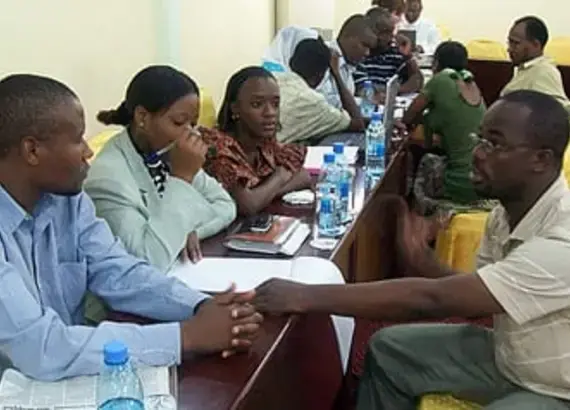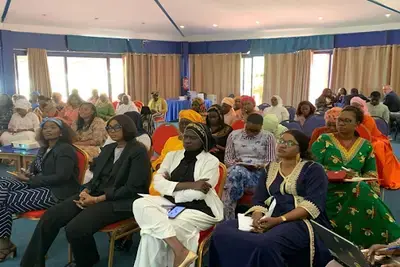
Success Story
Young Leaders Learn, Network at East African Political Academy
For young people in East Africa seeking to have a political voice, the two-year-old Regional Youth Leadership Academy (RYPLA) has helped show the way. One of its graduates, Daniel Taabu, has become executive director of the National Rainbow Coalition-Kenya (NARC-K), a political party with a seat in parliament. In Uganda, 14 graduates started Uganda Youth Stand Up, a nonprofit organization whose goal is to increase civic participation by registering one million young Ugandans to vote ahead of the February 2011 elections. Six of 15 Tanzanian participants from RYPLA's first year are now running for parliament.
In a region where large youth populations can feel disconnected from and overlooked by governments with aging leaders, these small steps can have a big impact. The majority of the population in Tanzania, Uganda and Kenya is under 35, but emerging young leaders have found few opportunities to acquire the experience needed to play leadership roles in their parties, run for office or govern in the future.
To help this new generation gain political expertise, NDI created RYPLA, which brings together young leaders from the three countries to boost their leadership skills and political networks as they begin their political careers.
Established in 2008 in partnership with the Kristdemokratiskt Internationellt Center in Sweden, the academy is for a select group of political party members, age 22 to 35, who aspire to elected office or party leadership. Last year, the group met three times and learned tools and strategies for organizing campaigns, reaching out to constituents and crafting a political message. RYPLA participants were nominated by their political parties based on their desire and potential to be leaders.
 NDI staff, including NDI-Kenya Senior Resident Director Mary O'Hagan (center), meet in preparation for the workshop.
NDI staff, including NDI-Kenya Senior Resident Director Mary O'Hagan (center), meet in preparation for the workshop.One session focused on the political climate in the participants' home countries, asking them to map the themes and issues that the electorate cares about. Another focused on how to use campaign resources to target geographic and demographic groups most sympathetic to a campaign's platform and message. Trainings were conducted on how to communicate effectively through the media, Internet or campaign events.
Attendees also participated in simulated campaign scenarios, such as giving a speech or writing a statement. They worked on public speaking, timing and political language skills, and wrote a sample campaign plan by the end of the academy.
Participants were encouraged to network with each other. Members of political parties from different countries rarely have opportunities to get together, but at RYPLA, participants met nightly, after the workshops, to informally discuss political issues of the day and their plans for the future. Participants from all three countries pledged to help each other with fundraising and support as they run for office in the coming years.
RYPLA was modeled after the Youth Political Leadership Academy, an NDI program in Kenya from 2001 to 2009. With the success of that initiative, NDI expanded the program to include other countries in the region.
Related stories:
- 10 days in Rwanda: training political parties to embrace technology»
- NDI marks 10 years of support for young political party leaders across Latin America»
- Leadership academy raises aspirations for young Middle Eastern women»
- 'Leaders of Tomorrow' conference kicks off collaborative program for North African women»
Pictured above: Participants at the third RYPLA session in Tanzania.
Published on May 27, 2010



